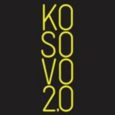Kosovo’s path toward European Integration has brought endless policy-making, institutional investment, democratic reforms — and yes, money too. It has also brought, among other things, a difficult dialogue with neighboring Serbia, a strict freedom of movement policy, and some say double standards. What is Kosovo ready to accept in the name of European Integration? Who are the main winners and losers of stagnant Europeanization? Can Kosovo afford the enlargement process at any cost?
Join our talk on July 13 at 18:00 at Dit’e Nat’ café and share your thoughts on these and other questions. The event will also feature the presentation of a book by Romanian lecturer in political science, Miruna Troncota, and to help get the discussion going we will also be joined by:
-Jeton Mehmeti (GAP Institute)
-Remzije Istrefi (University of Prishtina)
-Katarina Tadic (European Policy Centre, Belgrade)
-Albana Merja (Group for Legal and Policy Studies)
-Rudine Hasimja (Kosovo Foundation for Open Society)
The discussion will be moderated by K2.0’s staff writer on politics, Eraldin Fazliu.
Translation in English/Albanian will be provided.
See you there.
———————
About the book:
“Post-conflict Europeanization and the War of Meanings. The Challenges to EU Conditionality in Bosnia and Kosovo,” (Tritonic Publishing House, 2016) by Miruna Troncota, researcher at the National University of Political Science and Administration, Bucharest, Romania, specialized on the EU Integration of the Western Balkans.
When the war with the real weapons was over, another one was about to start — the cruel ‘war of meanings’, which targeted not the bodies, but the minds of people, with the main aim to deepen the gap between different ethnicities. In other words, in post-conflict countries each public narrative becomes a ‘weapon.’ The main red thread of the book unfolds around this idea, showing that the particularity of the post-conflict countries in the Western Balkans lays in the fact that different ethnicities attach contradictory meanings to the same political realities, which complicates the puzzle of post-conflict transformation in the context of the European Union integration process.
For an external observer, like the author of this book, who is originally from Romania and focuses on the ex-Yugoslav space, this symbolic process of constructing ‘parallel realities of political discourse’ raised multiple challenges. The discussion invites everyone interested in reflecting on the costs of the current stagnation of the enlargement process and the effects of ethno-nationalism on Europeanization.K
Photo courtesy of Dan Perjovsci, Balkan 2003.

